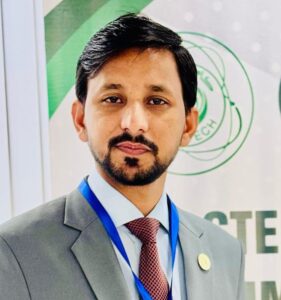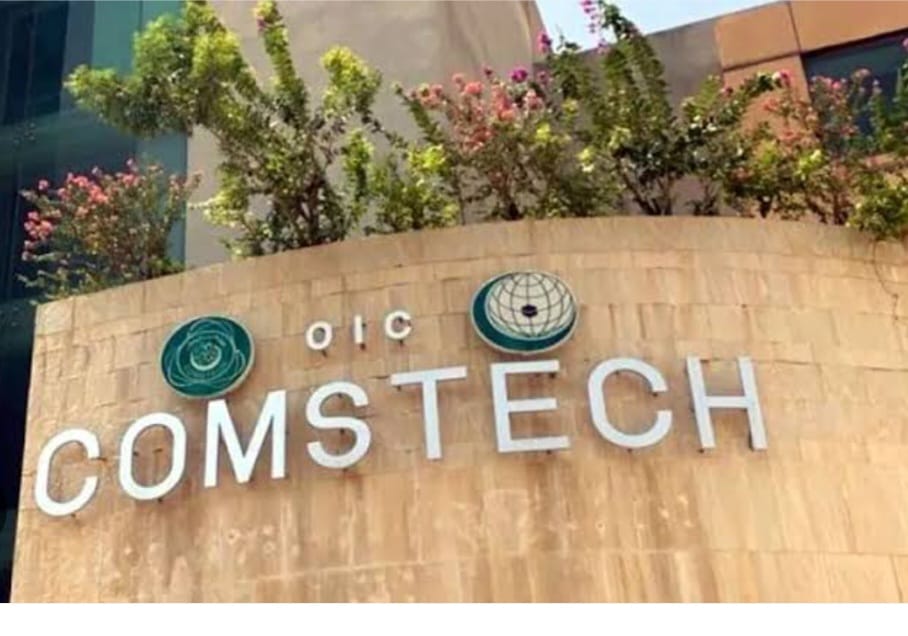
By Shabbir Hussain Ludharh
There was a time when Muslims were not merely students of knowledge — they were its torchbearers. From the golden domes of Baghdad to the scholarly lanes of Cordoba, from the bustling libraries of Cairo to the observatories of Samarkand, the Muslim world was once the epicenter of scientific discovery and intellectual enlightenment.
Great names echo through the annals of scientific history: Ibn Sina, the father of early medicine whose Canon of Medicine remained a standard text in Europe for centuries; Al-Khwarizmi, the pioneer of algebra, whose name gave rise to the term algorithm; Al-Biruni, who left indelible marks in astronomy, mathematics, and earth sciences; Ibn al-Haytham, the founding figure of optics; Al-Razi, Al-Zahrawi, Nasir al-Din Tusi, and many others who collectively lit the world with knowledge at a time when Europe remained cloaked in the shadows of the Dark Ages. 
But as history turned its pages, the Muslim world, once vibrant with scholarly brilliance, gradually stepped away from the path of scientific pursuit. And as we distanced ourselves from knowledge, the world, too, distanced itself from us.
Today, in a world dominated by Artificial Intelligence, biotechnology, space science, and quantum computing, the contribution of Muslim nations remains disproportionately low with few exceptions.
However, one organization is quietly, yet steadfastly, working to reverse this tide, COMSTECH, the OIC Standing Committee on Scientific and Technological Cooperation — under the dynamic leadership of Prof. Dr. M۔ Iqbal Choudhary, Coordinator General COMSTECH,
Headquartered in Islamabad, COMSTECH is the leading science and technology body of the Organisation of Islamic Cooperation (OIC). Chaired by the President and co-chaired by the Prime Minister of Pakistan, COMSTECH serves as a diplomatic and scientific bridge among OIC member states.
Over the past five years, Prof. Dr. Iqbal Choudhary has transformed it into a vibrant platform for international collaboration in science and technology. A globally respected and well known scientist, Dr. Choudhary has received numerous accolades including the Mustafa (PBUH) Prize, the highest scientific honour in the Islamic world. Pakistan has decorated him with the Tamgha-e-Imtiaz, Sitara-e-Imtiaz, and Hilal-e-Imtiaz. His contributions extend across continents from serving as honorary professor in multiple countries to mentoring over 100 PhD scholars, and even having a Chinese research center named after him.
Under his leadership, COMSTECH has launched a series of impactful programs aimed at scientific upliftment in the Muslim world. Most notably, it announced 5,000 scholarships for Palestinian students, many of whom are now pursuing higher education in Pakistan.
Through the COMSTECH Consortium of Excellence, premier universities and research institutions from countries such as Iran, Turkiye, Malaysia, Indonesia, Egypt, Jordan, Nigeria, Azerbaijan, Uzbekistan, and Bangladesh have been brought together to promote joint research, skill exchange, and academic mobility. Over 200 students and researchers have already benefited through fellowships and training programs.
Recognizing Africa’s urgent developmental needs, COMSTECH has launched targeted programs in countries such as Niger, Mauritania, Somalia, Gambia, and Sudan. These include scholarship schemes, technology transfer, and free cataract surgeries, over 1,200 operations performed so far. Moreover, 18 ophthalmologists from African nations received a year-long training in Pakistan on diabetic retinopathy and glaucoma treatment.
COMSTECH has also taken a bold stance on environmental and climate issues by establishing research networks focused on climate change, water scarcity, and green energy. The recent 9th International Water Conference is a testament to its dedication toward sustainable scientific dialogue.
Acknowledging China’s role in global scientific advancement, COMSTECH has initiated exchange programs with top Chinese universities, enabling OIC scholars to undertake cutting-edge research there. Even scientists from conflict-ridden nations like Syria, Yemen, and Afghanistan have been given platforms to continue their work through COMSTECH’s support preserving not just knowledge, but hope.
In a world increasingly driven by science diplomacy, Pakistan must recognize and strengthen institutions like COMSTECH. Despite limited resources, it has presented a compelling and positive image of Pakistan not just as a nuclear power, but as a scientific leader within the Islamic world.
The scientific renaissance that once defined the Muslim world is not a relic of the past — it is a legacy waiting to be revived. And COMSTECH is lighting the way.
Pakistan, as the custodian of COMSTECH, has a rare opportunity to lead this revival. It must invest strategically in science diplomacy, rally OIC member states, and elevate COMSTECH as a model of collaborative innovation. For the Muslim world to reclaim its intellectual heritage, it must first recognize the power of knowledge and those who strive to restore it. ( The writer serves as: Media Coordinator at COMSTECH Secretariat)


